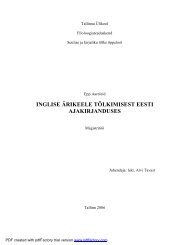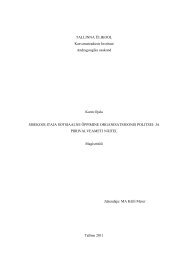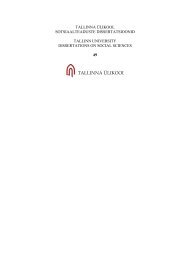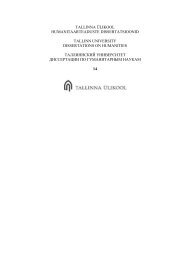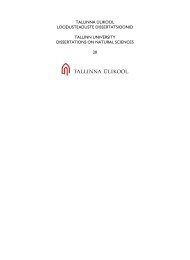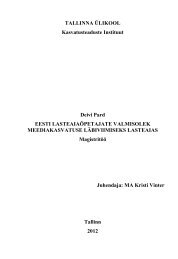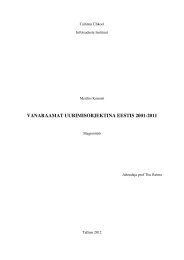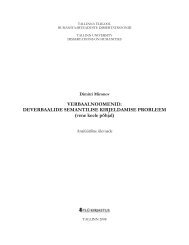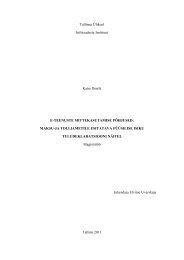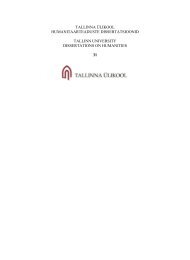Download (1157Kb) - E-Ait
Download (1157Kb) - E-Ait
Download (1157Kb) - E-Ait
Create successful ePaper yourself
Turn your PDF publications into a flip-book with our unique Google optimized e-Paper software.
to be emphasised in Tanzania public university libraries. E-mail mailing lists, wikis,<br />
electronic bulletin boards, intranets, blogs, and other forms of groupware, such as webconferencing<br />
systems are not well used by libraries. It may sound expensive to implement<br />
these facilities, but in actual fact, these are some of the things library staff use in their daily<br />
life. The emphasis on formal ways of knowledge sharing has rendered most technological<br />
infrastructure underutilised. However, ICT facilities could have been used to facilitate<br />
informal knowledge sharing and minimise costs. Library forums among other strategies for<br />
knowledge sharing can be well facilitated by technology and reduce the cost of hosting<br />
traditional library forums.<br />
Etienne Wenger, one of the originators of the term communities of practice, suggests that<br />
communities are not limited by formal structures. They create connections among people<br />
across organizational and geographic boundaries. From this perspective, the knowledge of an<br />
organization lives in a constellation of communities of practice, each taking care of a specific<br />
aspect of the competence that the organization needs. He however suggests that the very<br />
characteristics that make communities of practice a good fit for stewarding knowledge<br />
(autonomy, practitioner-orientation, informality, crossing boundaries) are also characteristics<br />
that make them a challenge for traditional hierarchical organizations (Wenger, 1998). When<br />
cooperation among Tanzania University Libraries is promoted, communities of practice may<br />
be easy to nurture.<br />
When a forum is created for experts in different areas to meet, learning is likely to happen<br />
even more than in seminars and meetings. The likely outcome is for these experts to start<br />
communicating and learn from each other, thus gaining more knowledge. This is only more<br />
possible when informal meetings are arranged. It is one way to enable staff to change the<br />
environment through the opportunity for them to meet and exchange knowledge which in<br />
turn will add value to the organisation. According to the findings none of the respondents<br />
acknowledged the presence of informal meetings which are very crucial for knowledge<br />
sharing as suggested in section 4.1.<br />
Kai Hakkarainen in “communities of networked experts” presents an example of a successful<br />
venture emerging out of informal knowledge sharing. An example of the power of informal<br />
discussions according to Hakkarainen led to the development of one of the most successful<br />
42




